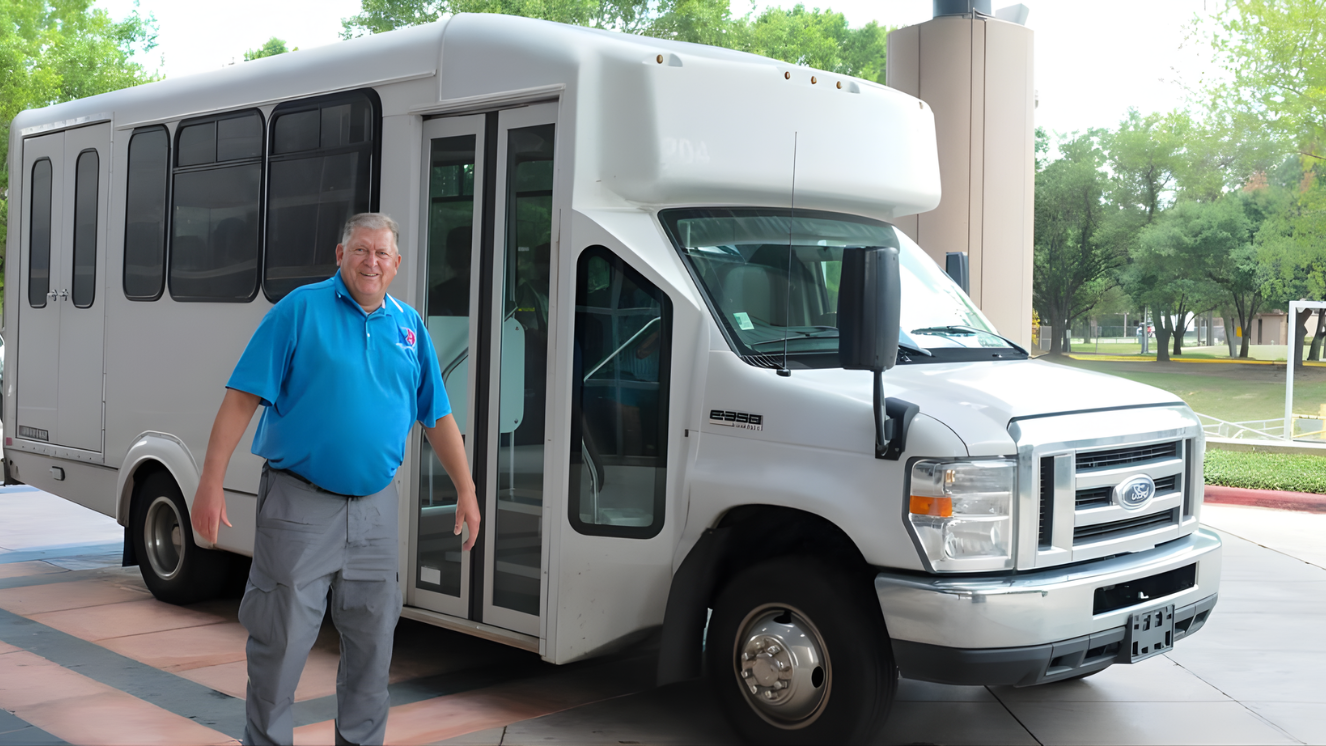ARE YOU ABOUT TO LOSE YOUR MILITARY RETIREMENT BENEFITS & CAN YOU?
COMMENT
SHARE

Introduction
The old saying “Easy come, easy go” applies to a lot of things in life, but it doesn’t typically apply to veterans benefits — and rightfully so! These aren’t just perks anyone can pick up for showing up to a job. An active-duty career in the U.S. military requires countless acts of service and sacrifice, and the benefits veterans and their dependents receive have been hard-earned every day. However, there are some ways that veterans CAN lose some of your military retirement benefits or have them reduced. We hope none of these situations are in your future, but they are good to know at the least so you can aim to avoid them.
3 Ways You Can Lose/Reduce VA Retirement Benefits
As a veteran of the U.S. armed forces, your service time has earned you many benefits from the U.S. Department of Veterans Affairs

1. Incarceration
Being convicted of a crime can have serious consequences, not just for daily life but for your veterans benefits. The ways that incarceration may affect your benefits include:
Pension
On its website, the Department states, “Veterans who receive a VA pension will have payments terminated effective the 61st day after imprisonment in a federal, state or local penal institution for conviction of a felony or misdemeanor.” The pension payments may be reinstated upon release from prison if the veteran meets certain eligibility requirements. Failure to notify the VA of incarceration could result in the loss of all financial benefits until the overpayment is recovered.
Disability Compensation
According to the VA, “Disability compensation payments are reduced if a Veteran is convicted of a felony and imprisoned for more than 60 days.” Veterans rated 20% percent or more are limited to the 10% disability rate. For a veteran whose disability rating is 10%, the payment is reduced by one-half. Once released from prison, a veteran may have their compensation payments reinstated, based upon the severity of the service-connected disability(ies). Payments are not reduced for recipients participating in work-release programs, residing in halfway houses or under community control.
Education Benefits
“Claimants incarcerated for a felony conviction can be paid only the costs of tuition, fees and necessary books, equipment and supplies,” according to the Department. When a veteran is incarcerated for anything other than a felony, the VA will still maintain full monthly benefits, if the veteran otherwise entitled. When convicted felons are residing in a halfway house or participating in a work-release program, those veterans can also receive full monthly benefits.
Apportionment to Your Spouse or Children
“All or part of the compensation not paid to an incarcerated Veteran may be apportioned to the Veteran's spouse, child or children, and dependent parents on the basis of individual need.” However, a veteran’s family members must contact the nearest VA regional office for details on how to apply. In determining individual need, consideration shall be given to such factors as the claimants’ income and expenses, the amount of compensation available, the needs and living expenses of other claimants as well as any special needs, if any.

2. Multiple Foreclosures in the VA’s Loan Program
The VA Home Loans Program is one of the greatest benefits veterans can access. It helps U.S. servicemembers, veterans and eligible surviving spouses become homeowners by guaranteeing a portion of the loan, enabling lenders to provide more favorable terms. The program’s pillars include:
- No down payment required
- Competitively low interest rates
- Limited closing costs
- No need for private mortgage insurance
Even better, the VA home loan program is a lifetime benefit: You can use the guaranty multiple times. However, a foreclosure — when a borrower cannot pay back the loan used to purchase a property — will definitely affect your eligibility for the program. Because the VA guarantees its loans, a foreclosure on a VA home loan causes the government to lose money when the borrower stops making payments. One foreclosure is not grounds for a loss of benefit, but, according to VA Home Loan Centers, an approved originator of VA mortgages, the VA will not issue a future loan to someone with an unpaid balance and two foreclosures. Thankfully the loss of this benefit isn’t entirely permanent. Your VA home loan benefits can be restored once the loss has been paid back in full, although you may need to wait a period of two years after a foreclosure for full eligibility. Remember:One foreclosure does not equal loss of benefit. If you have foreclosed on one VA loan, you can still apply for a second VA loan. Visit the VA’s web page specifically dealing with home loan eligibility and limits for more information.Suggested Read:VA Home Loan: A Comprehensive Guide for Veterans and Active Duty

3. Willful Misconduct
The term “willful misconduct” is used to describe some circumstances or behaviors that could prevent a veteran from being eligible for VA disability benefits. According to Benefits.com, a provider of information about government-funded benefit programs, behaviors that might qualify as willful misconduct and that could jeopardize VA disability benefits include:
Use of Tobacco Products
The VA considers tobacco-related disease as being the result of willful misconduct, but exceptions may be made for veterans who develop tobacco-related illnesses after using tobacco because of service-connected Post-Traumatic Stress Disorder.
Alcohol Abuse
If consuming too much alcohol results in a disabling condition, the veteran could be denied disability benefits. Usually, this might mean that any personal injuries (for example injury from a DUI or liver damage) that are caused due to the veteran’s abuse of alcohol would be denied eligibility. Again, however, exceptions may be made if the alcohol abuse can be linked to a veteran’s diagnosis of PTSD.
Drug Addiction
Similar to its stance on alcohol abuse, the VA must determine that use of drugs (either illegal or prescription drugs used illegally) is the direct cause of a disability to deny disability benefits. Again, PTSD may be factored into a veteran’s disability claim. In general, occasional use of illegal drugs to cope with PTSD may not rise to the level of willful misconduct.
Reckless Driving
A veteran may be denied benefits for a disability that results if they willfully engage in activities such as driving at excessive speeds, tailgating, making dangerous lane changes, etc.
Suicide or Self-injury
Unfortunately, due to many factors, these behaviors are not uncommon in the veteran population. While thoughts of suicide often are the result of mental health problems, a veteran could be denied VA disability benefits if they are deemed sound of mind when the suicide or self-harm occurs. In such cases, benefits may also be denied to the veteran’s survivors. If you or someone you know is struggling with thoughts of suicide or self-harm, call the Veterans Crisis Line at 1-800-273-8255. This number, part of the National Suicide Prevention Lifeline, provides 24/7, free and confidential support for people in distress, prevention and crisis resources for you or your loved ones, and best practices for professionals.More like this:Signs of PTSD: A Special Ops Veteran’s Awakening (Personal Story)
Conclusion
High standards of personal conduct are nothing new to those who have served with honor in the U.S. military. But once out of the structure of active duty, veterans may find it difficult to maintain this level of character. These negative behavioral choices are some of the main ways that veterans can lose their VA benefits or have them restricted. Are you a veteran facing the reduction of your military retirement benefits from some of these conditions? Get help through the Veteran Justice Outreach (VJO) Initiative, the Health Care for Re-entry Veterans (HCRV) Program and the VA’s regional loan center offices. Up next:5 Ways to Build Wealth With Military Pension & VA Disability
The information provided on this website does not, and is not intended to, constitute legal advice; instead, all information, content, and materials available on this site are for general informational purposes only.
Join the Conversation
BY JAMIE ROGERS
Veteran Benefits & Career Writer at VeteranLife
Jamie Rogers is a Contributing Writer at VeteranLife.com
Expertise
Jamie Rogers is a Contributing Writer at VeteranLife.com



